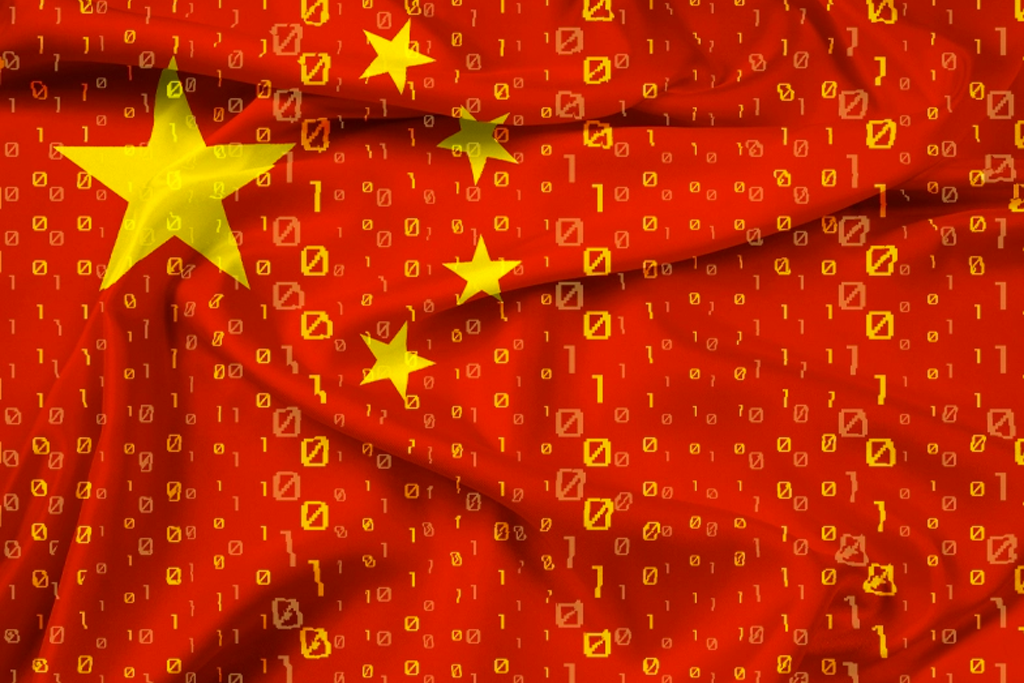At the tail end of last year, Chinese scientists claimed they had achieved something world-changing. In a widely circulated paper, the researchers said they had developed an algorithm run on a quantum computer that is able to break the best encryption that exists today.
Modern encryption runs on mathematical problems which take the most powerful computers tens of thousands of years to crack. It has long been theoretically possible that quantum computers could one day be capable of cracking these codes in a practical timescale. If the Chinese claim is correct, then Xi Jinping now possesses a terrifying assault weapon in cyber warfare.
The paper, however, was greeted with derision by many in the West. “This is one of the most actively misleading quantum computing papers I’ve seen in twenty-five years,” said Scott Aaronson of the University of Texas, “and I’ve seen many.” He wasn’t alone. “Can’t possibly work,” added Steve Brierley of the quantum software company Riverlane.
If the Chinese really have created this quantum computing algorithm, the threat to the West is existential. But if the claim is hollow, as is likely, then it’s only the latest example of a Chinese brag that turns out to be little more than a paper dragon.
For years, the image of China in the West has been one of a great imitator: it can copy what we do, goes the argument, and it can do it cheaper — occasionally better. But it’s no great innovator. Chinese military aircraft, for instance, look suspiciously like copies of American planes and are unlikely to outperform their western equivalents. The US, in fact, says Chinese nationals have stolen sensitive military documents for F-22 and F-35 planes. Chinese civilian cars, too, are almost exactly like German, American and British equivalents; if you want a cheap Mercedes G-Class, get yourself a BAIC BJ80, or a Land Wind if you’re after a Range Rover.
That China’s quantum computer claim was reported with seriousness in the West was in itself a triumph for Xi. The Chinese president is keen to encourage the belief that his country will become the world’s dominant superpower. But China’s attempts to take the lead when it comes to numerous scientific and technological advancements have so far had very mixed results.
Take China’s Covid vaccines, which were nothing like as good as the western ones. CoronaVac recipients are five times more likely to get severe disease than those with Pfizer. Unusually, the CCP has owned up to the vaccines’ shortcomings. “[They] don’t have very high protection rates,” said Gao Fu, one of the country’s leading disease control officials. Since Covid began in China, the CCP’s inability to produce a decent vaccine was, to say the least, embarrassing.
China’s progress in military technology is also in doubt. Beijing is known to be trying to develop hypersonic missiles, which in theory are able to vary their trajectory, making them harder to intercept than intercontinental ballistic missiles. Such weapons worry western military strategists because they could make it especially hard to defend aircraft carriers. However, it’s unlikely that Beijing’s scientists have created genuine hypersonic missiles. The ability to change direction creates drag, slowing the missiles down and making them easier to shoot out of the sky. Maintaining trajectory means maintaining speed, but also makes their path predictable and again easier to intercept. The laws of physics render such weapons unfeasible for battle.
Last week there were worrying reports that the People’s Liberation Army has more land-based intercontinental missile launchers than the US. Alabama Republican representative Mike Rogers, who chairs the House Armed Services Committee, warned: “The time for us to adjust our force posture and increase capabilities to meet this threat is now.” But the news doesn’t mean China has more nukes than the US; many of the Chinese silos are empty.
All that can be said with certainty is that China’s known armed forces are a triumph of quantity over quality. Its navy overtook that of the US a decade ago, and now boasts 348 fighting ships against America’s 296. But it’s certainly nowhere near a match in practical terms. Only three of its ships are aircraft carriers, against America’s eleven.
At the 2008 Olympics in China, four great inventions were celebrated — the compass, printing press, gunpowder and paper. This was a pretty thin list, mainly because Chinese science in the western sense is not much more than a century old. Until the end of the Qing dynasty in 1912, western science was largely ignored.
Feng Youlan, an American-educated Chinese philosopher, defined the problem. He argued that the nation’s philosophy and its view of the relationship between humans and nature conflicted with the scientific method. This only started changing at the end of the nineteenth century, when the Chinese began traveling abroad, especially to America, and became convinced that science and technology were what had made the West richer and more powerful than China.
Albert Einstein, who really did not like China, argued the Chinese failed to embrace the formal logic of the Greeks and the experimental method developed in the Renaissance. Confucian practicality also produced the motto “doing is more important than thinking,” which resulted in a bias against theory and abstract thought. This attitude was demonstrated by the former Chinese leader Deng Xiaoping, who advocated just getting things done. But it would be difficult to stumble upon relativity, quantum mechanics or nuclear physics without a comprehensive understanding of the theory.
Where Chinese attitudes towards science do give them an advantage today over the West is in their more relaxed approach to ethics and risk-taking. Take, for example, the use of gene-editing technology, known as CRISPR. In 2018, the Chinese scientist He Jiankui shocked the world by announcing that he had edited the genes of twin girls, Lulu and Nana, and a third child, Amy, to make them immune to HIV before they were placed in their mothers’ wombs. Publicly, Beijing was furious. He was fired from his university in Shenzhen and received a three-year prison stretch. The Chinese authorities accused him of having pursued “personal fame and gain” and to have “disrupted medical order.” Disorder and individualism are much disliked by the CCP. Yet, curiously, he told the Guardian last week that he has set up a new lab in Beijing to work on gene therapies, presumably with full CCP approval.
The whole scientific world knows about CRISPR. It also knows it is highly risky and can produce “off-target edits” — unexpected effects all over the genome that are potentially disastrous. China had to immediately distance itself from such cowboy science. “Under current circumstances,” said a statement at the time from the Chinese Academy of Science, “gene editing in human embryos still involves various unresolved technical issues, might lead to unforeseen risks, and violates the consensus of the international scientific community.” But there are signs that the country isn’t yet done with the practice.
No less offensive to the tender scientific sensibilities of the West is the China Brain Project (CBP) — a $746 million program to understand cognition, treat disorders and develop AI based on the workings of the human brain. Four years ago, the CBP lab conducted what became known as the “five sad monkeys” experiment, in which five macaques were cloned and genetically edited to remove the gene that regulates their circadian rhythms. Not surprisingly, they suffered sleep disorders and anxiety. It would be politically difficult to conduct such an experiment in the West. Academics at Georgetown University’s Center for Security and Emerging Technology have warned that China’s near monopoly on experimenting on primates — regarded as essential by most AI-brain researchers — gives the country an advantage.
But for now China is copying western AI. The country’s largest search engine, Baidu, is scrambling to copy elements of ChatGPT, the American chatbot that can do anything from creating meal plans to writing passable poetry. Another attempt at consumer AI, Xiaoice, was taken offline after its answers criticized the CCP.
Xi himself says the science race is existential, warning at a politburo meeting that China must accelerate its scientific and technological research ‘to prevent us becoming strangled by foreign countries’.
The West seems to agree: thwarting Beijing is the only major issue that both Republicans and Democrats agree on. Joe Biden last year announced significant export controls on America’s most advanced chips.
Xi’s China does produce more scientific papers than the West and some of its major institutions are world-class (and they do well attracting western scientists, in large part because of their lax ethical restrictions). But there are still large question marks over many of China’s claims to have caught up with or overtaken the West when it comes to all manner of military, science and tech industries. That the West is scared by the possibilities of Chinese technology is evident when it comes to surveillance more than anything else. We saw this with the spy balloon recently shot down over America, as well as the banning in Britain of Chinese-made equipment from the 5G network, and the gradual dismantling of Chinese tech from existing broadband systems.
For the moment, at least, it is hard to say that China’s developments live up to Xi’s ambitions. The country’s burst balloon might serve best as a metaphor for Xi’s scientific and technological ego — or at least we can hope so.
This article was originally published in The Spectator’s UK magazine. Subscribe to the World edition here.

























